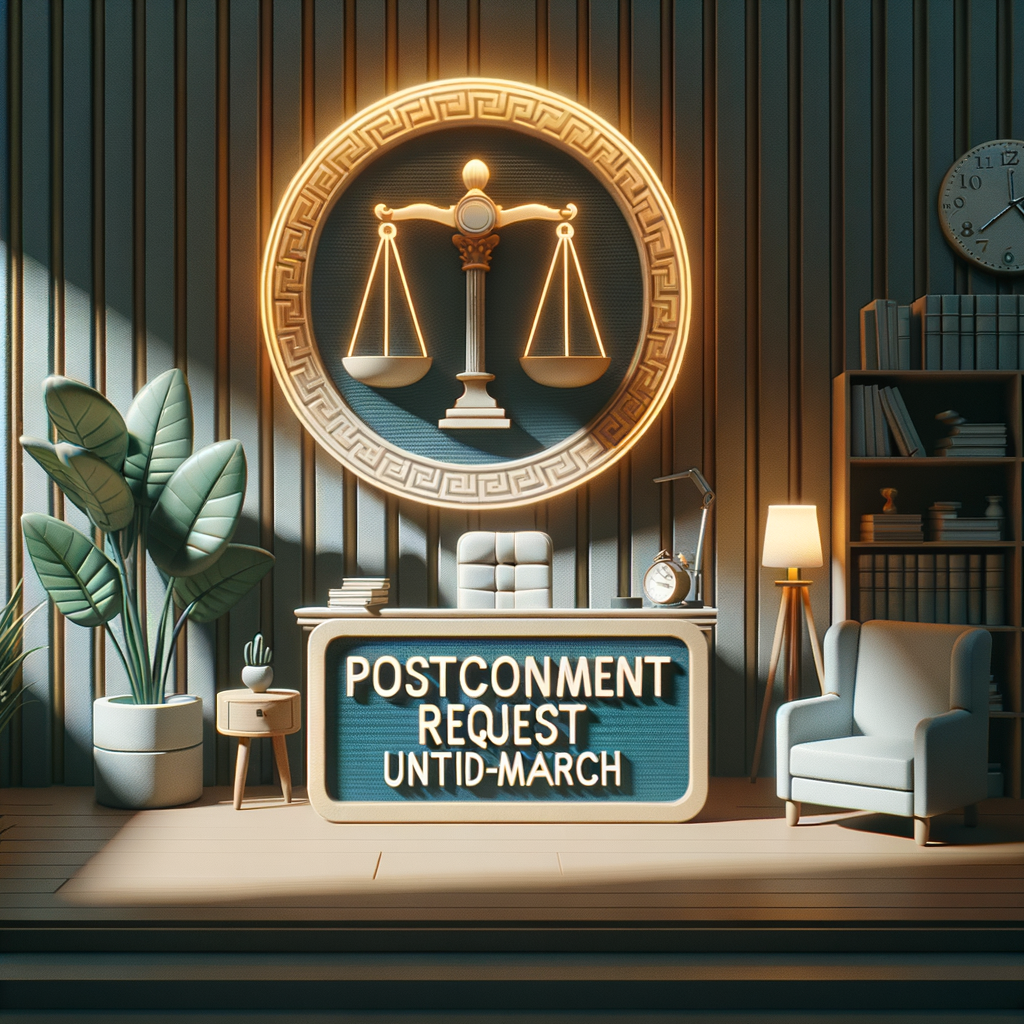Legal Strategies and Implications of Do Kwon’s Request for Trial Postponement
Do Kwon Requests US Court Approval to Postpone Terra Trial until Mid-March
In a strategic move that has rippled through the legal community, Do Kwon, the embattled co-founder of Terraform Labs, has sought the approval of a US court to postpone his highly anticipated trial until mid-March. This request, if granted, could afford Kwon and his legal team additional time to prepare a robust defense, potentially altering the trajectory of a case that has captured the attention of the cryptocurrency world.
The trial, which centers on the dramatic collapse of the Terra ecosystem in May 2022, has raised critical questions about the responsibilities of cryptocurrency founders and the protections afforded to investors in this rapidly evolving sector. Kwon’s request for postponement is not an uncommon legal tactic, yet it underscores the complexities involved in litigating cases that straddle the cutting edge of financial technology and regulatory oversight.
The implications of this delay are multifaceted. On one hand, it could provide Kwon’s defense team with the opportunity to delve deeper into the intricate web of transactions and decisions that preceded the Terra crash. This additional time may be crucial for uncovering new evidence or formulating legal arguments that could sway the court in Kwon’s favor. Moreover, the postponement could allow for a more thorough examination of the regulatory environment surrounding cryptocurrencies, which remains a contentious and unsettled area of law.
On the other hand, the delay has the potential to prolong the uncertainty faced by investors who were affected by the collapse of Terra’s stablecoin, TerraUSD, and its sister token, Luna. For many, the trial represents a chance for closure and a hope for restitution, and any postponement could be seen as a setback in their quest for justice. However, the optimistic view suggests that a well-prepared trial could ultimately lead to a more equitable outcome for all parties involved.
The request for postponement also signals a recognition of the stakes at play, not just for Kwon but for the broader cryptocurrency industry. The outcome of the trial could set important precedents for how crypto projects are conducted and regulated in the future. As such, the additional time may be seen as an investment in ensuring that the legal framework keeps pace with the innovation occurring within the crypto space.
Furthermore, the delay could have strategic implications for the prosecution as well. It grants them additional time to solidify their case against Kwon, potentially leading to a more comprehensive presentation of the facts and a stronger argument for holding him accountable for the events that transpired under his leadership.
As the court considers Kwon’s request, the legal community and cryptocurrency enthusiasts alike are watching closely. The decision to postpone the trial will not only affect the immediate parties involved but could also influence the broader dialogue on the regulation and governance of digital assets. With optimism in the air, many are hopeful that this additional time will lead to a fair and judicious resolution, one that balances the interests of justice with the innovative spirit that defines the cryptocurrency sector.
Analyzing the Impact of Do Kwon’s Trial Delay on Terra Investors and the Crypto Market
Do Kwon Requests US Court Approval to Postpone Terra Trial until Mid-March
In a recent turn of events, Do Kwon, the embattled co-founder of Terraform Labs, has sought permission from a US court to delay his impending trial until mid-March. This request, if granted, could have significant implications for both Terra investors and the broader cryptocurrency market. Kwon’s legal team argues that additional time is necessary to prepare a robust defense in a case that has captured the attention of the global crypto community.
The trial, which centers on the dramatic collapse of the Terra ecosystem in May 2022, has left investors reeling and regulators scrambling to understand the complexities of the situation. The delay, while potentially frustrating for those seeking immediate resolution, may also provide a silver lining. It offers a window for reflection and analysis, allowing stakeholders to better comprehend the intricacies of the case and its potential outcomes.
For Terra investors, the postponement could be a double-edged sword. On one hand, the delay extends the period of uncertainty, potentially affecting their financial planning and investment strategies. However, on the other hand, it could also mean that their interests are more thoroughly represented in court. A well-prepared defense might unearth details that could influence the direction of any restitution efforts or regulatory actions that follow.
The crypto market, known for its volatility and sensitivity to news, has been closely monitoring the situation. The initial collapse of Terra’s Luna token and its associated stablecoin, TerraUSD, sent shockwaves through the industry, prompting calls for increased oversight and consumer protection. The trial’s delay could serve as a breathing space for the market, allowing it to stabilize and regain some of the confidence lost in the aftermath of the Terra debacle.
Moreover, the postponement may have a ripple effect on the ongoing discourse surrounding cryptocurrency regulation. As regulators and policymakers watch the case unfold, the additional time could facilitate more informed decision-making. It provides an opportunity for the crypto industry to engage with regulators, offering insights and proposing frameworks that could prevent similar incidents in the future.
Optimistically speaking, the delay in Do Kwon’s trial could be seen as a chance for healing and growth within the crypto space. It allows for a more measured approach to resolving the Terra crisis, one that prioritizes thoroughness over haste. For investors, this could translate into a more equitable process, while for the market at large, it could mean the development of stronger, more resilient practices.
In conclusion, while the request to postpone Do Kwon’s trial may initially appear as a setback, it carries with it the potential for positive outcomes. Terra investors may find solace in the prospect of a more comprehensive legal process, and the crypto market could benefit from the additional time to fortify itself against future challenges. As the case progresses, all eyes will remain on the unfolding legal drama, with the hope that the eventual resolution will bring about a more stable and trustworthy cryptocurrency ecosystem.







